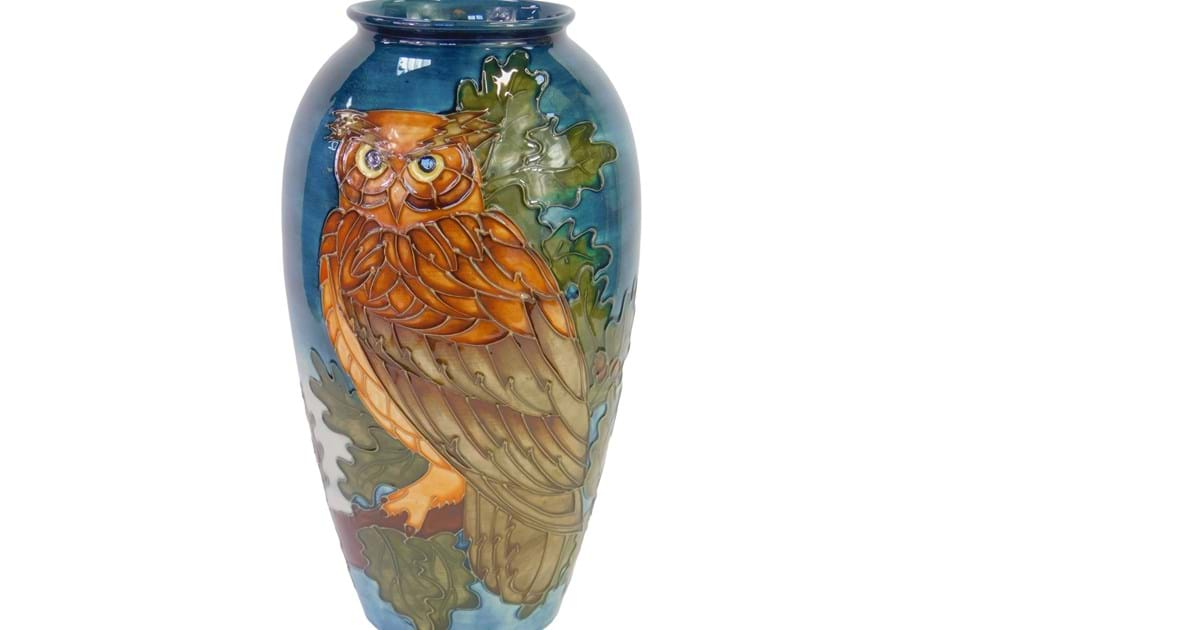A medal presented to a trawler man from Grimsby who helped protect Britain's coast during the First World War is being sold at auction.
The George V medal for distinguished service was presented to G. M. Barnes for his work in the Dover Patrols on February 14 and 15, 1916. It is one of the highlights of the next sale at auctioneers Golding Young & Mawer on Wednesday, November 21.
Auctioneer John Leatt said: "It is unusual for a medal such as this to come onto the open market because very few were awarded for service during the First World War to civilians.
"As it has a strong Lincolnshire connection, we expect a lot of interest on sale day from local collectors and historians and estimate it will sell for between £150 and £250."
The Dover Patrol was one of the most important Royal Navy Commands of the First World War. Its primary task was to prevent enemy German ships and submarines from entering the English Channel en route to the Atlantic Ocean.
Its duties in the North Sea and the Dover Strait included carrying out anti-submarine patrols, escorting merchantmen, hospital and troop ships, laying sea mines and sweeping up German mines.
All number of vessels were involved including armed trawlers, cruisers, destroyers, paddle minesweepers, armed yachts, motor launches, coastal motor boats, submarines, seaplanes, aeroplanes and airships.
After the war in July 1921, a memorial was unveiled at Leathercote Point near St Margaret's Bay, Dover.
Elsewhere in the sale, a collection of rare Masonic jewels and regalia is expected to sell for between £300 and £400. The items, which include Founders' Jewels and those from other Craft Orders, were brought into the auction house during a free valuation day and came from a Nottinghamshire house.
A violin made by Herbert W. Tyson (b. 1878) of Louth in 1928 is estimated to sell for between £200 and £300.
Two late 19th century pictures of the London to Boston coach during winter by L. Smith are estimated to sell for between £100 and £200 each. The naïve oil on canvas paintings came from a house clearance in the centre of Louth.
A mahogany carpenter's toolbox with satinwood banded interior, which includes a number of moulding planes and other tools, made by Cecil Hague of Lincoln is expected to sell for between £100 and £150. A well-known publican and horse trainer, Mr Hague served his apprenticeship in 1925 under cabinet makers Curtis and Mawer of 40 Silver Street, Lincoln, and went on to run the Prince of Wales pub in Bailgate and The New Station at Langworth.
Among 10 longcase clocks in the sale, which are expected to sell for between £200 and £1,000 each, there is an Edwardian mahogany clock retailed by A.C. Pailthorpe Jewellers of Grimsby which is expected to sell for between £500 and £800. The clock is unusual as it has a musical chime striking on nine gongs.
A rare '78rpm record titled 'Football Match No. 1, Newcastle United v. Man City 1910' is estimated to sell for between £50 and £100. The Zonophone Record includes crowd noise and banter and is believed to be the first FIFA match recorded.
A collection of die cast toys, including W. Britain farm yard animals and British Soldiers such as the Middlesex Regiment and the Royal Fusiliers, along with some early 20th century games are expected to sell for between £50 and £100 each. The games include an early back-light theatre called 'Pepper's Ghost' and others such as 'Parlour Golf', 'Croquet' and 'The Penalty Kick Football Game'.
A special section of the sale will be dedicated to collectables and decorative items which have been donated to the Lincoln charity for children and young people with disabilities, Strut in the Community. Items include a Victorian tin trunk, Edwardian dining room china, a collection of walking sticks, costume jewellery, bone china ornaments and tea ware, cameras, collectables and clocks. There is also a watercolour drawing of a gallery by the artist Tod Picton-Warlow who has exhibited at London galleries.
There is also a collection of miners' lamps, several lots of '00' gauge model railway, led soldiers and cameras.

